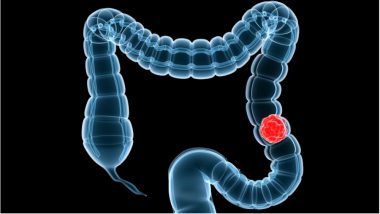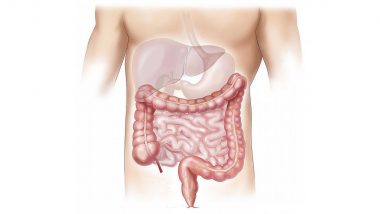Six Family members of Goraj village of Gujarat’s Vadodara diagnosed with Familial Adenomatous Polyposis (FAP), an inherited disorder which is rare in India. The issue came into light when 52-year-old Paresh went to a private hospital after complaining of weight loss and changes in bowel movement. At the hospital, colonoscopy testing confirmed the presence of multiple polyps (small protruding growth) in Paresh’s colon. These types of polyps are generally seen in a clinical condition known as FAP.
Speaking about the condition, Dr. Rakshit Shah, surgical oncologist, said, “FAP is an inherited disorder characterised by cancer of the large intestine (colon) and rectum. It is an adult-onset disease which is caused by a genetic mutation where in the body cells aren’t able to suppress the development of tumour.” Explaining it further, Dr. Shah said that typically 100-1,000 polyps appear in the colon and rectum at an early age, which if left untreated, leads to aggressive colorectal cancer by the age of 40 years.
“There are currently no curative treatments for FAP and surgical removal of the polyps remains the mainstay. On further investigation, it was found that a total of six family members (ages 35-60) had polyps and were diagnosed with FAP. All affected individuals were operated to remove multiple polyps in the colon and rectum, “Dr. Shah said. He further added, “Such cases happen where marriages within the family happens, it’s like Thalassaemia where mutation aggravates among the children. Gene testing of 26 members was conducted and that revealed a mutation in the Adenomatous polyposis coli (APC) gene, not only in all six FAP-diagnosed family members, but also in four young individuals (ages 6-23 years) who have not yet been diagnosed with FAP,” said Dr. Aarti Khanna, vice president of MedGenome, where the testing was conducted.
It is essential to understand the symptoms and causes of bowel cancer. Surgical biopsy results showed that the polyps were pre-cancerous. Since this appeared to be a case of familial colorectal cancer, all 26 family members were tested for genetic mutations which are known to underlie this type of cancer. Of the 10 members, four young individuals have a strong predisposition of getting polyps later, which means they have more chances of having FAP disease. Hence, they were counselled and encouraged to undergo regular colonoscopies.
(The above story first appeared on LatestLY on Apr 19, 2018 09:08 AM IST. For more news and updates on politics, world, sports, entertainment and lifestyle, log on to our website latestly.com).













 Quickly
Quickly




















